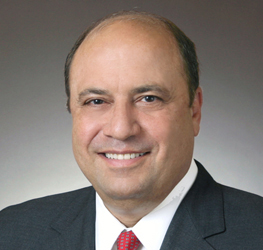The Florida Office of Insurance Regulation (OIR) has agreed to begin proceedings to adopt a new rule to implement the Florida workers’ compensation excess-profits law. The agreement was reached last week with FFVA Mutual Insurance Company, which challenged the OIR’s use of unpublished internal policies on what expenses companies were allowed to claim for excess-profits reporting purposes. FFVA Mutual, which Foley represented in the administrative action, alleged that the OIR was implementing invalid non-rule policy that restricted companies’ ability to reduce their excess-profits exposure by claiming certain expenses such as federal and state income taxes, reinsurance expenses, surplus-note expenses, and investment expenses.
The agreement reached between the workers’ compensation insurer and the OIR will stay pending administrative proceedings while the OIR attempts to promulgate a valid rule. The rulemaking process should begin within the next several weeks. Interested insurers and the public at large will have an opportunity to participate in the rulemaking process.
Florida’s excess-profits law, section 627.215, Florida Statutes, was originally enacted in 1979 when the Florida Legislature adopted a so-called wage-loss system to replace traditional permanent partial compensations benefits. At the time, the excess-profits law was intended to address legislators’ concerns that workers’ compensation insurers might reap excessive profits as a result of the change in the workers’ compensation benefit structure. The 1979 wage-loss system has come and gone, and Florida has seen numerous benefit system reforms since then. But, the excess-profits law has remained on the books.
Until recently, it was a fairly rare occurrence for a Florida workers’ compensation insurer to be required to refund excessive profits to its policyholders. In the past several years, however, as the Florida market improved for workers’ compensation insurers, numerous companies have been forced to make refunds totaling hundreds of millions of dollars. In some cases, companies complained that they were not allowed to take deductions for expenses they incurred in the ordinary course of doing business. The rulemaking process, which will begin shortly, should provide the insurance industry with a forum to air its views on which expenses should be allowed for excess-profits reporting purposes.
Interested workers’ compensation insurers doing business in Florida should contact legal counsel to discuss the effect of these developments on their specific situations.
Legal News Alert is part of our ongoing commitment to providing up-to-the-minute information about pressing concerns or industry issues affecting our insurance clients and colleagues. If you have any questions about this alert or would like to discuss this topic further, please contact your Foley attorney or any of the following individuals:
Thomas J. Maida
Tallahassee, Florida
850.513.3377
[email protected]
Austin B. Neal
Tallahassee, Florida
850.513.3363
[email protected]

